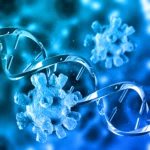
Immunohistochemistry and the Dawn of Personalized Cancer Treatment
In the realm of cancer care, one size does not fit all. The journey toward effective treatment requires a nuanced understanding of the unique characteristics of each tumor. Enter Immunohistochemistry (IHC), a groundbreaking technique that has become a cornerstone in the era of personalized cancer treatment. Explore how IHC is breaking barriers, providing a roadmap for tailored therapies that hold the promise of improved outcomes for cancer patients.
The Essence of Personalization:
Cancer is not a monolithic adversary; it’s a collection of diverse diseases, each with its molecular fingerprint. IHC plays a pivotal role in unraveling this complexity by identifying specific proteins within tumor tissues. These proteins, often referred to as biomarkers, offer insights into the genetic and molecular makeup of the cancer, laying the foundation for personalized treatment strategies.
Targeting Therapies with Precision:
Understanding the molecular profile of a tumor is instrumental in choosing the most effective therapeutic approach. IHC enables clinicians to pinpoint specific biomarkers associated with a patient’s cancer, guiding the selection of targeted therapies. This precision medicine approach minimizes the “hit or miss” nature of traditional treatments, offering patients a greater chance of therapeutic success.
Stratifying Patients for Better Outcomes:
Not all cancers respond uniformly to the same treatments. IHC allows for the stratification of patients based on the molecular characteristics of their tumors. By identifying subtypes and predicting responsiveness to certain therapies, clinicians can tailor treatment plans to maximize efficacy while minimizing side effects, ultimately leading to better patient outcomes.
Predictive Biomarkers and Treatment Response:
IHC’s ability to assess the expression of predictive biomarkers is a game-changer in cancer treatment. By examining the tumor for specific proteins indicative of response or resistance to certain therapies, clinicians can make informed decisions about treatment selection. This dynamic approach ensures that patients receive therapies with the highest likelihood of success, fostering a more targeted and effective treatment journey.
Navigating Challenges with Technological Innovations:
While IHC has revolutionized personalized cancer treatment, challenges such as tumor heterogeneity and standardization persist. Technological innovations, including multiplex staining techniques and digital pathology, are overcoming these obstacles. These advancements not only enhance the accuracy of IHC but also pave the way for more comprehensive analyses, further refining the landscape of personalized cancer care.
Empowering Patients through Informed Decisions:
The integration of IHC into cancer diagnosis and treatment empowers patients to actively participate in decisions regarding their care. Armed with insights into the unique characteristics of their cancer, patients and their healthcare teams can collaboratively chart a course of treatment that aligns with both medical evidence and individual preferences.
Conclusion:
Immunohistochemistry stands at the forefront of the personalized cancer treatment revolution, providing a roadmap for clinicians to navigate the intricate landscape of individual tumors. As technology continues to evolve and our understanding of cancer deepens, IHC remains a beacon of hope, guiding us toward a future where each patient’s journey is uniquely tailored for the best possible outcome. The dawn of personalized cancer treatment is breaking barriers, heralding a new era in the fight against this formidable adversary.



